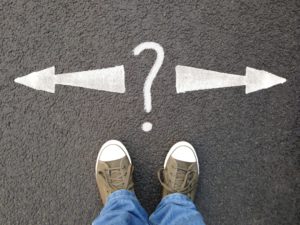December 14th’s massacre of 20 children and 6 adults in Sandy Hook Elementary, a Connecticut-based elementary school by a deranged 20-year old has left not only our entire country shaken, but our entire world. What would possess a young man to take such horrific action? As a parent, my blood ran cold when the news first broke. These families that lost loved ones will never be “OK.” For the rest of their lives, they will feel pain and loss every day. Nothing will ever fill the void that has been left. Every day will be filled in some capacity with sadness and grief.
I actually searched for some sort of guidance on leadership during a crisis like this. There were dozens of articles on how to lead in “tough times” – times of economic uncertainty, times of changing political climates, times of war, and other typical tough scenarios. There was nothing, however, on how leaders should react and somehow be a catalyst for the societal change that is required to prevent this from happening again.
What bothers me is that almost immediately after this heartbreaking event, the blame game started. Finger-pointing ensued, with almost all fingers immediately pointing outward at politicians. The topic of gun control, and the need for tougher laws is now front and center. The controversial debate of “guns don’t kill people; people kill people” is everywhere. Vocal opponents and backers of the second amendment, the right to bear arms, are loudly voicing their positions.
The truth is, every single person needs to be looking at themselves, asking, “What can I do to prevent this from ever happening again?” “How can I be the change that we wish – that we NEED – to see in the world?”
World change starts with personal, individual change. It starts with the examination and modification of our own behaviors. Let’s face it: if we wait for world change to occur through our political system, nothing will ever change. I’m not suggesting that other efforts be ignored while we work on personal change. Why in the world would assault rifles EVER be available for public purchase?? That defies logic. And clearly, school security must be top-of-mind for school officials. However, as these changes are underway, we must all take personal ownership for ensuring change.
Two immediate things come to mind for me:
1: How much are we there for others?
2: Do we inadvertently contribute to the negative stigma that surrounds mental illness?
Starting with #1, Adam Lanza, the 20-year old shooter was described over and over again as a loner. He fits the same profile as the other shooters that have massacred innocent victims: young and male. Erika Christakis, a Time journalist, says “The numbers are sobering when we look at young men. In the United States, for example, young white males (between age 14 and 24) represent only 6% of the population, yet commit almost 17% of the murders. For young black males, the numbers are even more alarming (1.2% of the population accounting for 27% of all homicides). Together, these two groups of young men make up just 7% of the population and 45% of the homicides. Overall, 90% of all violent offenders are male, as are nearly 80% of the victims. (http://www.cnn.com/2012/07/24/opinion/christakis-males-homicide/index.html?iref=allsearch).
What are we doing as a society to reach out to these loners? How do we reach them? I know the answers are complex, but in order to start figuring out the answer, we need to first ask the question.
Christakis continues to say, “For millennia, human society has struggled with what to do with young men’s violent tendencies. Many cultures stage elaborate initiation ceremonies, presided over by older men, which help channel youthful aggression into productive social roles. But in contemporary society, we have trouble talking about the obvious: The transition from boy to man is a risky endeavor, and there can be a lot of collateral damage.”
As a mom of two boys, ages 12 and 15, I can personally attest to the fact that my presence has never been more important than it is now. As I like to say, it is “game on” for me for the next six years as I help them navigate through middle school and high school, and emerge as compassionate, connected, thoughtful, and productive young men.
What are we doing as a society to not be on auto-pilot as these young boys come of age, and to ensure that they transition successfully to adulthood? How are we as a community – as a society – caring for this population?
Addressing my second topic, mental illness, is just as difficult. There is so much negative stigma and shame surrounding mental illness. How do we as a society overcome this? How do make it OK to not be OK?
For those affected, how do we make it safe and possible for them to talk about their problems and seek help without repercussion? Roland Martin, another excellent Time journalist, hit the nail on the head in his recent article about guns and mental illness. “We are a nation that has chosen to either medicate or ignore altogether,” he says.
[“They have a few screws loose.” “You know he’s off his rocker.” We’ve heard all of the terms. We often laugh and dismiss the mentally ill in America, choosing to cross the street when we see the homeless veteran screaming and cussing at anyone who walks by. When it’s time for budget cuts, those most vulnerable often get thrown out first.
For years American cities, counties and states have shirked their responsibility when it comes to the mentally ill, choosing to abandon helping them, but quick to build a new prison to incarcerate them when a law is broken.
Now we wait to see if the Newtown, Connecticut, killer will be the latest Jared Lee Loughner (Gabby Giffords), Seung-Hui Cho (Virginia Tech), or James Holmes (Colorado movie theater all individuals who were described as mentally unstable.
Too often the warning signs were there, but ignored for one reason or another.”]
Here is his full article: http://www.cnn.com/2012/12/14/opinion/martin-gun-control/index.html?iref=allsearch
As leaders, we have to be the first to ask the difficult questions. We have to be the first to change our own behavior – to make it safe for others to consider changing their behaviors.
I’m asking the difficult questions. Do you have any answers? Solutions? Suggestions? Please post them – without the blame and the finger-pointing. How do we as a society make a shift?
I’ll also be the first to publicly state that I do seek help. I crave help. I have multiple support groups who are my lifelines when I face difficult times. I think therapy is one of the best inventions since sliced bread. There you have it. I have gone on record and said it – I seek help.
Our entire country is in mourning. These events will reverberate long after we turn the calendar to 2013. If you need help, seek it. If someone you know needs help, give it. THIS is the only way we will start to heal.
Before we judge others, first let’s come to situations from a place of compassion. For a first-hand perspective of what it is like to be a mother to child like Adam Lanza, I encourage you to read this: http://www.huffingtonpost.com/2012/12/16/i-am-adam-lanzas-mother-mental-illness-conversation_n_2311009.html
Wishing all of you peace, strength, and healing.






